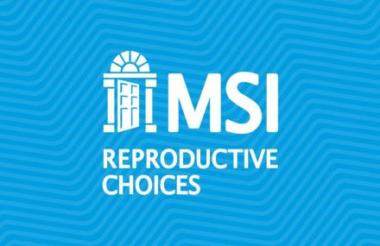MSI Reproductive Choices (MSI) paid its chief executive an almost £230,000 bonus last year as part of an overall package of more than £460,000.
The charity, formerly known as Marie Stopes International, said Simon Cooke’s remuneration was set to ensure it has “the best leadership in place”.
This comes after the Charity Commission ordered MSI’s board to review its remuneration procedures in 2019 over concerns around its decision to award Cooke a bonus of £217,000 in 2018.
According to the charity’s latest set of accounts, Cooke was paid a base salary of £231,625 in 2021, up from £225,791 the year prior, and a bonus of £229,070, up from £18,000 in 2020.
Elsewhere, the charity saw a small drop in income, partially due to a decrease in funding from the Foreign, Commonwealth & Development Office (FCDO). Meanwhile, donations income increased from 2020.
MSI ‘pay salaries to attract the right talent and leadership’
Since the Commission ordered the MSI board to review the way it decided bonus pay for senior staff, Cooke was paid a lower additional amount of £124,000 in 2019 and £18,000 in 2020. But last year's figure exceeded the 2018 payment.
A MSI spokesperson told Civil Society News the trustees take their responsibilities for the evaluation of chief executive remuneration “very seriously” and had listened to the feedback from the Commission.
They said: “In response, we have separated our Nomination and Remuneration Committees, with the latter focusing solely on executive and chief executive pay. They meet twice a year and discussions are fully minuted and discussed at the main board meeting.”
“MSI is a global social business that provides health services across 37 countries, employs nearly 9,000 people, and manages around £290m annually. We generate a significant portion of our revenue from our own private sector operations and the chief executive's total remuneration package is set by the board of trustees, as part of our duty to ensure our organisation has the best leadership in place to deliver on our ambitious targets.
“It is benchmarked against our international NGO and commercial partners, with whom we compete for the best staff, and set against tough and measurable targets designed to achieve the highest possible impact and return on investment for our donors and stakeholders.
“In 2020, the chief executive’s remuneration package was significantly lower due to the impact of the pandemic, and this year it reflects the organisation’s exceptional results and recovery post-Covid.
“While we do not attempt to match corporate packages, we do pay salaries to attract the right talent and leadership skills and are confident that this is the right approach for the delivery of our organisation’s mission and for the women who need our services. Today there are more than 34 million women around the world using contraception provided by MSI Reproductive Choices.”
Total staff costs were around £133m, down from £137m the year prior, and the average number of staff was also down on the year before, at 8,803 compared to 9,476.
A Charity Commission spokesperson said: "The Charity Commission is not a pay regulator, but we expect decisions about pay to be made carefully, mindfully and in a way that ultimately serves the charity’s beneficiaries into the future.
“We expect charities to undertake benchmarking exercises to set appropriate salaries for senior positions. If charities are unable to explain very high pay packets, they risk denting public confidence.”
We are aware of potential concerns at MSI Reproductive Choices and are assessing information to determine whether or not this is a matter for the Commission.”
Income and reduced FCDO funding
In 2021, MSI’s total income dipped to £290.6m, down from £294.4m in 2020.
Donations income edged higher to £10.8m in 2021 from £10.0m in 2020, though grant income decreased to £136.1m from £152.3m, “in part due to average increased strength of the GBP throughout the year and in part due to reduced FCDO funding”.
The accounts state “if 2020 was a year like no other, 2021 saw a remarkable recovery”, allowing MSI to reach over 19.4m clients, of whom 17.3m received a method of contraception, a safe abortion, or a post-abortion care procedure.
“Faced with unprecedented funding uncertainty” from the FCDO, according to the accounts, MSI mobilised a diverse group of foundations and individual donors who stepped in to ensure that access was maintained.
Plans to diversify funding base
“However, the sexual and reproductive health sector continues to face a funding crisis, exacerbated by economic uncertainty and an over-reliance on a small number of funders: continuing to diversify our funding base and expanding domestic financing will be crucial to realising our MSI 2030 goals and sustaining access in the long term,” they read.
A MSI spokesperson said: “We are proud of what MSI and the UK government have achieved together over the last decade and are grateful for the FCDO’s support for the ground-breaking Women's Integrated Sexual Health (WISH) programme which, to date, has averted 28,584 maternal deaths, 5.7 million unintended pregnancies and 2.5 million unsafe abortions. They continue to be global leaders on sexual and reproductive health and rights and we look forward to continuing to work together to champion the rights of women and girls across the world.”
The 2030 strategy set the target general reserves level to £45m with £20m to be held in accessible assets in an investment fund by the end of 2030.
Closing general reserves was £46.0m “which is ahead of our target due to the strong surplus position during the year and continuing focus on sustainability of our social marketing and self-sustaining programmes”.
At the end of the financial year, the charity held £17.1m in the external investment fund, an increase of £2m on the prior year.
Related Articles












